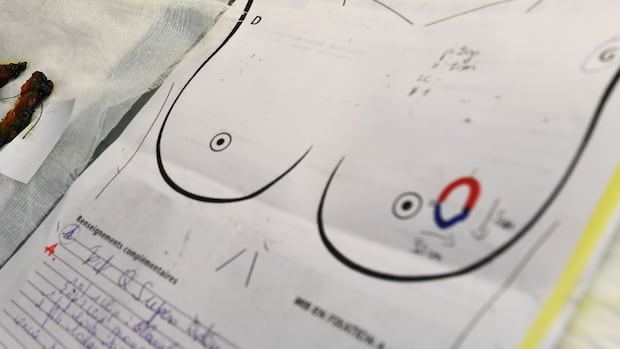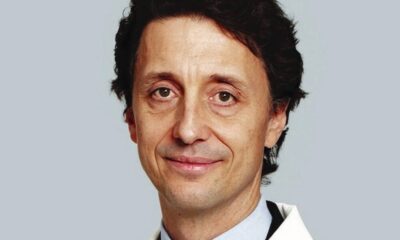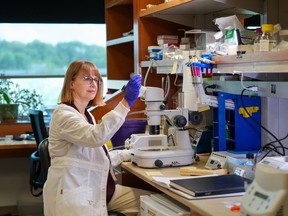Top Stories
New Study Reveals Why Breastfeeding Reduces Breast Cancer Risk

URGENT UPDATE: New research from Australia confirms why breastfeeding significantly reduces the risk of breast cancer. Medical experts are now uncovering vital clues that could lead to groundbreaking treatments aiming to mimic the cancer-preventive benefits of nursing.
In a study published in the journal Nature in October 2023, researchers discovered that women who breastfed had a higher presence of specialized immune T-cells in their breast tissue. Lead author, Prof. Sherene Loi, described these cells as “local guards, ready to attack abnormal cells that might turn into cancer.” This finding is a significant step toward developing preventative measures for all women, not just those who have given birth.
The implications of this research are monumental. If scientists can decode the mechanisms behind breastfeeding’s protective effects, it could pave the way for new treatments that mimic this natural defense. Dr. Steven Narod, a prominent public health professor at the University of Toronto, emphasizes the urgency of understanding these immune functions. He stated, “If we start to understand how breastfeeding protects against cancer, that could lead to new treatments.”
The study also highlights the unique challenges faced by younger women, particularly those with mutations in BRCA genes, which significantly increase their risk of breast cancer. In a separate analysis involving Canadian women in their 30s, Narod and his team found that breast cancers in younger patients often progress more aggressively than those in older women.
To aid in understanding these dynamics, the Princess Margaret Cancer Centre is launching a comprehensive genomic study targeting up to 100,000 people in Ontario over the next five years. This ambitious initiative aims to uncover hereditary cancer risks and improve preventive strategies.
Experts stress the importance of recognizing that not all women can or wish to breastfeed. Dr. Stephanie Wong, a surgical oncologist in Montreal, underscores the multifaceted nature of breast cancer risk, stating, “There is rarely one single risk factor.” She encourages a broader view of health that includes lifestyle choices, environmental factors, and genetics.
Emerging data reveals that how the immune system interacts with breast tissue during pregnancy and breastfeeding may be key to preventing aggressive forms of cancer. Christopher Maxwell, a pediatrics professor at the University of British Columbia, likens the mammary gland to a fruit tree, undergoing seasonal changes that prepare it for lactation. He posits that understanding these cycles could inform future treatments.
As researchers continue to explore the cellular and molecular profiles of breast cancer, they are paving the way for more targeted interventions. The recent studies indicate that tailoring approaches to younger women may be critical in reducing risks and improving outcomes.
Moving forward, Narod plans to investigate the breastfeeding practices of women diagnosed with breast cancer and BRCA1 mutations to assess if breastfeeding correlates with lower recurrence rates. “We’ve heard that many patients have a baby after having breast cancer,” he noted, hinting at the potential for new insights into treatment and prevention.
This research not only sheds light on the biological factors influencing breast cancer but also reinforces the significance of support systems for women at risk. With ongoing studies and new findings, the fight against breast cancer continues to evolve, holding promise for more effective preventive measures in the near future.
Stay tuned for more updates on this developing story as researchers work tirelessly to unlock the secrets of breast cancer prevention.
-

 World4 months ago
World4 months agoScientists Unearth Ancient Antarctic Ice to Unlock Climate Secrets
-

 Politics2 days ago
Politics2 days agoSecwepemc First Nation Seeks Aboriginal Title Over Kamloops Area
-

 Entertainment4 months ago
Entertainment4 months agoTrump and McCormick to Announce $70 Billion Energy Investments
-

 Lifestyle4 months ago
Lifestyle4 months agoTransLink Launches Food Truck Program to Boost Revenue in Vancouver
-

 Science4 months ago
Science4 months agoFour Astronauts Return to Earth After International Space Station Mission
-

 Technology2 months ago
Technology2 months agoApple Notes Enhances Functionality with Markdown Support in macOS 26
-

 Top Stories4 weeks ago
Top Stories4 weeks agoUrgent Update: Fatal Crash on Highway 99 Claims Life of Pitt Meadows Man
-

 Sports4 months ago
Sports4 months agoSearch Underway for Missing Hunter Amid Hokkaido Bear Emergency
-

 Politics3 months ago
Politics3 months agoUkrainian Tennis Star Elina Svitolina Faces Death Threats Online
-

 Politics4 months ago
Politics4 months agoCarney Engages First Nations Leaders at Development Law Summit
-

 Technology4 months ago
Technology4 months agoFrosthaven Launches Early Access on July 31, 2025
-

 Top Stories2 weeks ago
Top Stories2 weeks agoFamily Remembers Beverley Rowbotham 25 Years After Murder





















